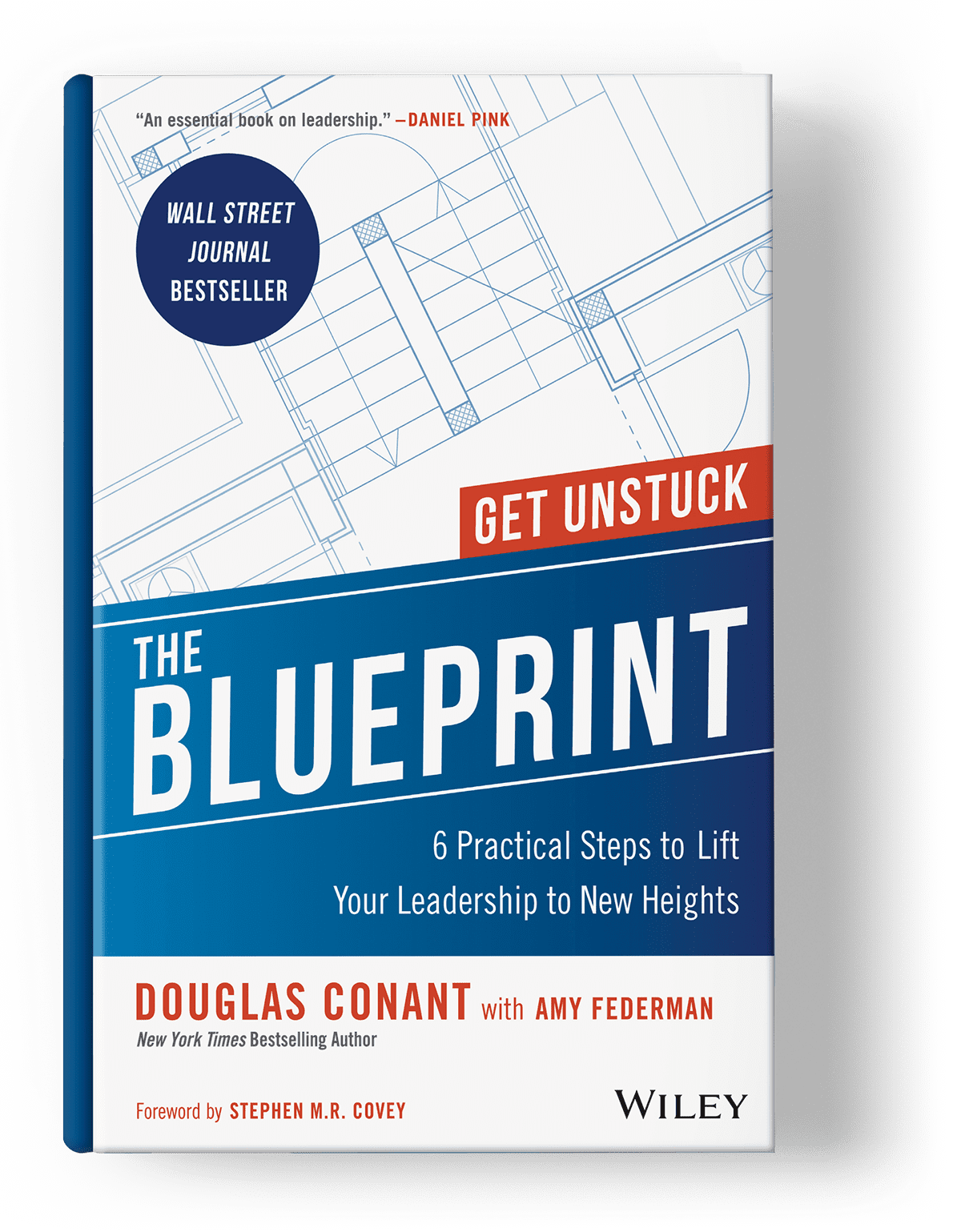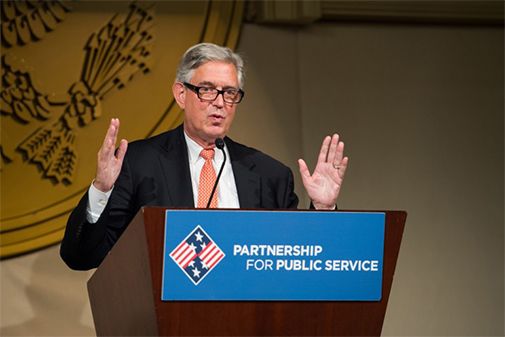Today we dispatched the most recent edition of our Leadership That Works Newsletter, a curated digest of the most intriguing leadership links to read right now, sent at the end of each month. In this month’s 7 intriguing leadership links: your brain is tricking you, humility is greater than charisma, write your own obituary, and more. As always, we’re sharing the articles from our newsletter here in case you’re not subscribed to our mailing list. If you like what you see, you can sign up to receive our newsletter here.
Humility > Charisma
Research neatly summarized in the Wall Street Journal here shows that, “companies with humble chief executives are more likely to have upper-management teams that work smoothly together, help each other and share decision-making.” And studies show, “humility is a core quality of leaders who inspire close teamwork, rapid learning and high performance in their teams.” Yet the myth persists that charm and charisma are more favorable leadership traits because humble people tend to fly under the radar. As research about the importance of humility becomes increasingly compelling, more companies are trying to find ways to measure it and incorporate it into their hiring decisions. Learn more about this and take a humility self-assessment here.
Got Courage? Even If You Don’t, You Can
In a complex world, fear is inevitable and therefore courage is highly valuable. Many people try to get rid of, avoid, or dismiss fear but author Kate Swoboda writes in this interesting article that, “we can choose to accept fear as part of the process of change and instead practice courage.” Some leaders think that you either have courage or you don’t. But that’s not the case argues Swoboda. In fact, courage is not an inborn trait but “a way of being and a practice that can be learned . . . courage can become a habit.” Helpfully, she shares four actionable strategies for cultivating courage here.
**Want to learn more about strengthening your courage muscle? Read our post about leading with courage here, or explore our collection of quotes about bravery here.
Play Hard . . . At Work
We don’t often consider ‘play’ to be part of a productive business plan. But that may be partially because we are mistakenly pigeonholing play as something meant only for leisure time argues this Boston Consulting Group brief on the topic. The fact that “innovation productivity” is declining while “workplace disengagement” is rising suggests we might need to become more “productively playful.” The authors define play for this purpose as having three essential components, “improvisation, imagination, and inspiration” and they show how these are ingredients for success in an uncertain and complex marketplace. Explore their full slate of recommended actions for inspiring more “productive play” in your organization here.
Your Brain Is Tricking You
Here’s a spooky thought for leaders: science presented in The Atlantic suggests we’re hardwired to delude ourselves with cognitive biases. While most people think of some kind of prejudice when they hear the word “bias”, there are many types of cognitive biases that inform our behavior and negatively affect our decision making — like the “sunk cost fallacy” that tricks us into thinking we should stick with a bad investment because of the money we have already lost on it, or the even more pervasive “confirmation bias” which leads us to only seek evidence confirming what already think or suspect while ignoring evidence that supports a different point of view. Years of research suggest biases like these are entrenched and difficult to overcome. But some encouraging new approaches offer a glimmer of hope. Explore this fascinating article for an overview of the many types of innate biases that can trip us up and a primer on some of the newer methods for avoiding these pitfalls.
To Lead Is Human
It can be tempting to delineate between who we are as leaders and who we are as overall human beings. But the key to becoming a better leader is by being the best human you can be says Mary Jo Asmus in this short post. To stimulate your thinking on the matter and self-assess, she compiled 13 interesting questions to ask yourself. These questions will help you take a closer look at how you’re doing in leadership and life.
**For more provocative questions and self-assessments, explore our leadership competence checklist, our leadership character checklist, and check out our questions of the head and questions of the heart.
Write Your Own Obituary
It may seem a tad macabre (appropriate for the end of October) but Hiroshi “Mickey” Mikitani, CEO and Chairman of Rakuten, Inc., recommends writing your own obituary as a helpful exercise for designing the life and career you want. “Envisioning your own death is a good way to generate a successful plan.” he says, pointing out that it forces us to think differently. We’re used to thinking in forward motion and planning next steps rather than reverse-engineering our future. Says Mikitani, “when we take the time to reverse our conventional thinking, we can achieve new clarity about our path to success.” Read the full post here.
How to Lead By Example
“To get the results that are needed to move things forward, we have to start with our own actions” writes our Founder, Doug Conant, in this new post on leading by example. Getting started does not have to be overwhelming. Says Doug, “by finding manageable ways to champion change with your own behavior, you can begin to transform results and maximize your team’s impact.” Read his two easily digestible and practical tips on leading by example here; these strategies were gleaned from his 45 years of leadership experience including C-Suite tenures as President of Nabisco Foods and CEO of Campbell Soup Company.
Enjoyed these links? Check out our recent link roundups from September, August, and July. Explore our suite of leadership resources here. Or, join our mailing list here.
Ready to take your leadership to the next level? For an immersive and transformational leadership experience, apply to attend one of our upcoming leadership Boot Camps, taught personally by our Founder, Doug Conant, the only former Fortune 500 CEO who is a NYT bestselling author, a Top 50 Leadership Innovator, a Top 100 Leadership Speaker, and a Top 100 Most Influential Author in the World.
(Header photo by Daan Stevens on Unsplash)






0 Comments